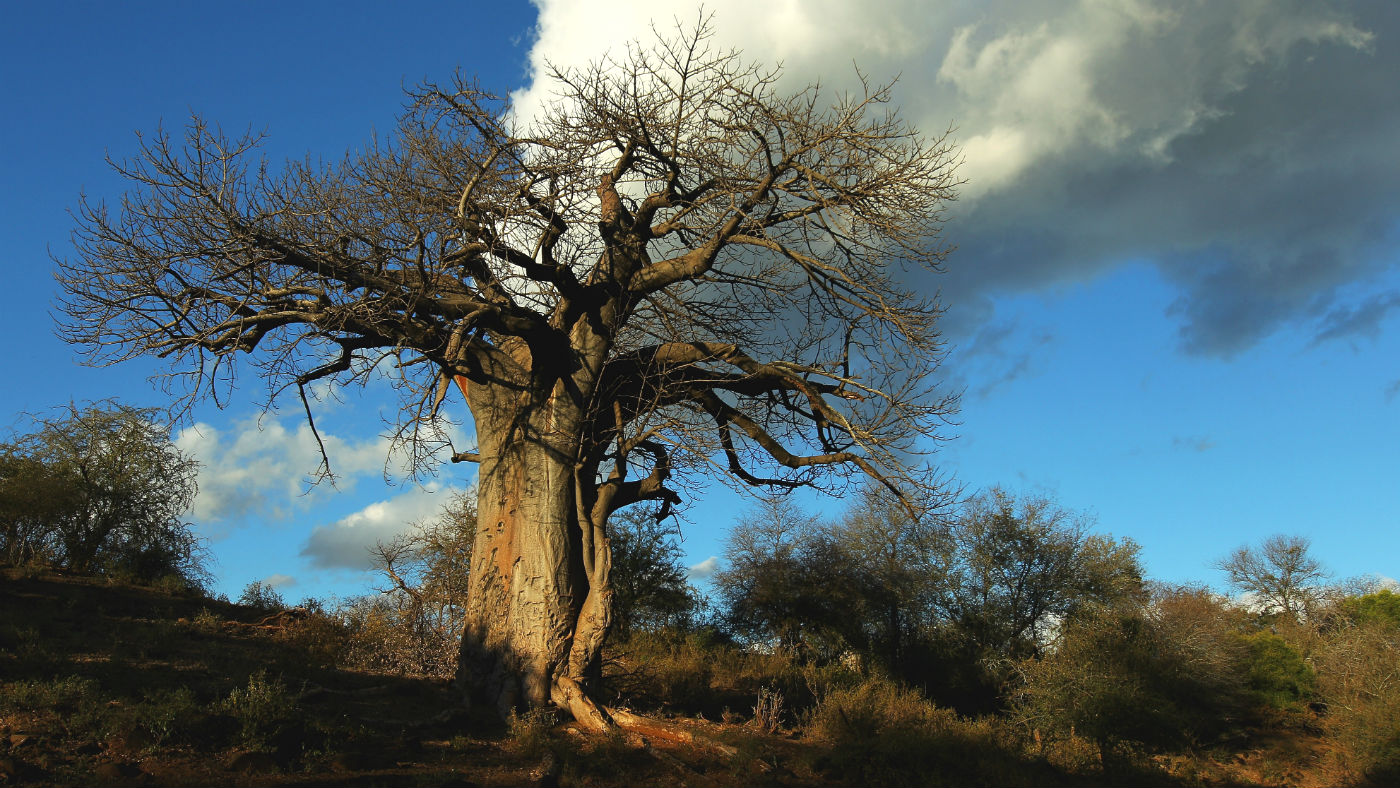Why are Africa’s baobab trees dying?
Majestic trees appear to be in sudden decline after thousands of years

A free daily email with the biggest news stories of the day – and the best features from TheWeek.com
You are now subscribed
Your newsletter sign-up was successful
Despite typical lifespans of hundreds or even thousands of years, Africa’s baobab trees are dying off rapidly, according to a new study by ecologists.
Also known as upside-down trees, baobabs, with their distinctive bulbous trunks and spindly branches, are synonymous with the African bush, where the vast majority of them are found.
Some of the largest are more than 20m wide - one specimen in South Africa known as the Platland housed a bar until it began to rot and split apart in 2016.
The Week
Escape your echo chamber. Get the facts behind the news, plus analysis from multiple perspectives.

Sign up for The Week's Free Newsletters
From our morning news briefing to a weekly Good News Newsletter, get the best of The Week delivered directly to your inbox.
From our morning news briefing to a weekly Good News Newsletter, get the best of The Week delivered directly to your inbox.
The baobab is “often referred to as the ‘tree of life’ for its ability to produce nutrient-rich fruit even during Africa's harsh dry season”, says CNN, and its longevity is legendary. The oldest living members of the species date back to the time of the ancient Greeks.
Now, however, death seems to be catching up with them.
Between 2005 and 2017, researchers documented and monitored 60 of the largest baobabs in southern Africa, including a handful believed to be more than 2,000 years old. Since the study began, nine of the 13 oldest have died or partially perished.
This represents a “shocking and dramatic” decline, says the study’s co-author, Adrian Patrut of the Babeș-Bolyai University in Romania.
A free daily email with the biggest news stories of the day – and the best features from TheWeek.com
His study, published in the journal Nature Plants, suggests “that the demise of monumental baobabs may be associated at least in part with significant modifications of climate conditions that affect southern Africa in particular”.
Despite their hardy character, baobabs need water just like any other plant, and southern Africa has become hotter and dryer in recent years.
Disease is another potential factor, although “none of the fallen trees have shown signs of infection, and the pattern of their deaths doesn’t fit with a spreading contagion,” The Atlantic reports.
Plant pathologist Michael Wingfield told Nature that “we know very little about baobab health”, and ecologist David Baum said more evidence is needed to conclusively link the spate of deaths to climate change.
However, he told NPR, “it is very likely that human actions, whether by changing the local landscape or altering global climate, have contributed to the death of so many large baobabs”.
-
 One great cookbook: Joshua McFadden’s ‘Six Seasons of Pasta’
One great cookbook: Joshua McFadden’s ‘Six Seasons of Pasta’the week recommends The pasta you know and love. But ever so much better.
-
 Scientists are worried about amoebas
Scientists are worried about amoebasUnder the radar Small and very mighty
-
 Buddhist monks’ US walk for peace
Buddhist monks’ US walk for peaceUnder the Radar Crowds have turned out on the roads from California to Washington and ‘millions are finding hope in their journey’
-
 Epstein files topple law CEO, roil UK government
Epstein files topple law CEO, roil UK governmentSpeed Read Peter Mandelson, Britain’s former ambassador to the US, is caught up in the scandal
-
 Iran and US prepare to meet after skirmishes
Iran and US prepare to meet after skirmishesSpeed Read The incident comes amid heightened tensions in the Middle East
-
 Israel retrieves final hostage’s body from Gaza
Israel retrieves final hostage’s body from GazaSpeed Read The 24-year-old police officer was killed during the initial Hamas attack
-
 China’s Xi targets top general in growing purge
China’s Xi targets top general in growing purgeSpeed Read Zhang Youxia is being investigated over ‘grave violations’ of the law
-
 Panama and Canada are negotiating over a crucial copper mine
Panama and Canada are negotiating over a crucial copper mineIn the Spotlight Panama is set to make a final decision on the mine this summer
-
 Why Greenland’s natural resources are nearly impossible to mine
Why Greenland’s natural resources are nearly impossible to mineThe Explainer The country’s natural landscape makes the task extremely difficult
-
 Iran cuts internet as protests escalate
Iran cuts internet as protests escalateSpeed Reada Government buildings across the country have been set on fire
-
 US nabs ‘shadow’ tanker claimed by Russia
US nabs ‘shadow’ tanker claimed by RussiaSpeed Read The ship was one of two vessels seized by the US military